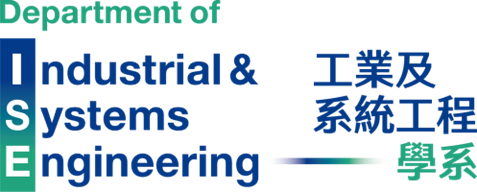Electrically interconnected suspension system for improving vehicle ride comfort and safety
Distinguished Research Seminar Series

-
Date
15 Nov 2023
-
Organiser
Department of Industrial and Systems Engineering, PolyU
-
Time
10:00 - 11:30
-
Venue
DE308
Speaker
Prof. Haiping Du
Summary
To mitigate vibrations originating from various sources, such as uneven road surfaces and vibrating tools, from reaching the vehicle, its passengers, and the driver, most vehicles employ a suspension system. This vehicle suspension system is, in reality, a complex, multi-degree-of-freedom vibration system. It encompasses four primary vibration modes: bouncing, pitching, rolling, and warping, which describe the relative motion between each wheel and the vehicle body. The traditional design of independent suspension often exhibits tightly intertwined stiffness and damping characteristics, making it challenging to optimise independently for different vibration modes. This frequently results in a trade-off between ride comfort and stability, with both objectives often remaining unattained simultaneously.
In recent times, the electrically interconnected suspension has been proposed as a new technology aimed at enhancing vehicle ride comfort and safety. In this presentation, we will provide an overview of our research on electrically interconnected suspension and its associated technologies. We will begin by discussing the limitations of conventional interconnected suspension systems. Subsequently, we will delve into the operating principles and technical features of electrically interconnected suspension systems, with a primary focus on the electrical network and decoupling control characteristics. We will demonstrate the concept of synchronous decoupling control of multiple vibration modes, discuss control algorithms, and present performance verification results. Finally, we will explore new potential application areas.
All of the presented developments stem from our recent research findings and publications. The electrically interconnected suspension holds significant promise for real-world implementation due to its rapid responsiveness, relative affordability, straightforward design, and remarkable effectiveness.
Keynote Speaker

Prof. Haiping Du
Professor, School of Electrical, Computer and Telecommunications Engineering,
University of Wollongong, Australia.
Prof. Du received the PhD degree in mechanical design and theory from Shanghai Jiao Tong University, Shanghai, China, in 2002. Prof. Du was a Research Fellow with the University of Technology, Sydney, from 2005 to 2009, and was a Postdoctoral Research Associate with Imperial College London from 2004 to 2005 and the University of Hong Kong from 2002 to 2003. Prof. Du is a senior Professor at the School of Electrical, Computer and Telecommunications Engineering, University of Wollongong, Australia, since 2016. Prof. Du is a Subject Editor of the Journal of Franklin Institute, an Associate Editor of IEEE Transactions on Industrial Electronics and IEEE Control Systems Society Conference, an Editorial Board Member for some international journals, such as Journal of Sound and Vibration, IMechE Journal of Systems and Control Engineering, Journal of Low Frequency Noise, Vibration and Active Control, and a Guest Editor of IEEE Transactions on Mechatronics, IET Control Theory and Application, IET Intelligent Transportation Systems, Mechatronics, Advances in Mechanical Engineering, etc. My research interests include vibration control, vehicle dynamics and control systems, robust control theory and engineering applications, electric vehicles, robotics and automation, smart materials and structures.
You may also like














